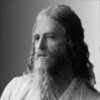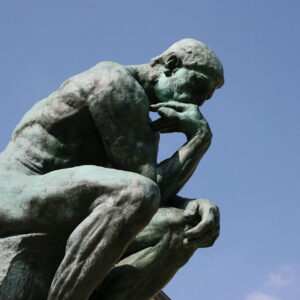The guru was giving a discourse before a group of attentive students. Suddenly, the assembly was interrupted by a woman rushing to the feet of the sage. Holding her lifeless child, she announced between sobs that her only baby was now dead. She declared her faith in God and the great sages and implored the guru to use his divine powers to restore the breath to her child. Filled with compassion but understanding the nature of life and the spiritual journey, the guru said he would perform the miracle if she could bring to him a mustard seed from a home that had not known suffering.
The woman raced frantically from house to house, imploring at each door the mustard seed that had not been within walls of suffering. But at each home, the story was similar– poverty, illness, trauma, untimely death, there was always some calamity that had made its way into the family. You can imagine how the despair of the grieving mother grew.
Exhausted and defeated, the woman eventually buried her child and returned to the guru. With a newfound understanding and humility, she sat before the teacher, prepared to learn the lessons of life and death, and the means to overcome suffering.
We in the West tend to believe in a myth that death will alleviate suffering. We fantasize that somehow the loss of the physical body results in consciousness being transported to a realm of rest and peace. Yoga does not agree that death ends suffering. Yoga believes strongly in reincarnation; that the level of consciousness with which we leave this world will follow us to our next home. Yoga agrees that the post-life experience may be pleasant but it is not the permanent solution. Many people may have earned a stay in one of the heaven realms, just as a hard-working laborer may earn two weeks vacation during the year, but both parties return to “work” at the conclusion of their respite.
The dead do not rest in peace any more than a vacationer is guaranteed his flights will arrive and depart on time. Death does not guarantee peace or wisdom. If someone leaves this world an angry, judgmental individual there is no reason to believe he will suddenly awaken as an angel in a heavenly realm. Likewise, just because someone is temporarily living in a high sphere is no reason to believe that they are immensely wiser than we human beings. This is why yoga pays no heed to channeling, mediums, and other such phenomena.
Peace is not something that belongs to the dead, it is the goal of life. Resting does not mean laying beneath the ground, it means walking with your heart content. To rest in peace is not the result of death, it is the reward of a life well lived. Living well means strengthening the body, quieting the mind, opening the heart, and serving others.
The purpose of yoga practice is to learn to overcome suffering. For most of us, the first step in this journey is to alleviate bodily pains and discomforts. And this is no small step. It is very hard to care for much else when the body feels like a burden and one’s vitality is lagging. After the body begins to stabilize, however, one sees how suffering is ultimately a spiritual problem that requires a spiritual solution. It is at this point that yoga begins to fulfill its potential as a spiritual therapy.
Many people in the West seek psychotherapy to help them cope with their problems and anxieties. Psychotherapy involves healing the “psyche,” the Greek word for “soul.” So psychotherapy should serve to heal the problems of the soul. The most common contemporary manifestations of the soul problem are hurry, worry, fear, and self-doubt. To deal with these four troubles, however, is to deal with symptoms and not the cause. The cause lays deep in the psyche as a primal idea which we in the West call “sin.”
In the West, we have generally been taught that sin is a behavior that has somehow insulted the supreme being and for which we must pay a price, usually in the form of punishment. Yoga teaches that sin is simply the sense of separation from the one Creator and the unity of all life. But the individual soul can no more be separate from her creator than the wave can be separate from the ocean. As the wave is the expression of the ocean, the soul is the expression of the love of God. To believe and act from separation is not a sin, says yoga, it is just an illusion. And illusions require healing, not punishment
To heal the sense of sin and the various resulting maladies, we practice yoga to help increase shanti, peace, and shakti, vitality. Peace helps us develop wisdom, the ability to see situations objectively. Vitality gives us the energy to practice compassion, serving others. When wisdom and compassion arise within a human being he is said to be healed. He has overcome the root illusion that he is a feeble, pitiful sinner and has claimed his birthright as a divine soul who is expressing the love and respect of his creator.
To reduce suffering, or to even just feel a little bit better, we engage in yoga sadhana, practice. We first practice feeling good in our body, then we extend that feeling into the deeper reaches of ourselves, healing the discontentment and inferiority complex. And then, as the great yoga really begins, we extend the good feelings out into the world, into our lives of relationships and commitments. We generously love those with whom we are close, and we generously forgive others with whom we may experience conflict.
As we practice yoga in order to end suffering and live a life of wisdom and compassion, we find that the basic nature of the world does not change. The seasons still come and go, night and day revolve, and sickness and death are still the lot of everyone. But the miracle, the real miracle, is that the drama of human life is seen within a grand context of spiritual beauty. It still hurts when you stub your toe, or when a loved one falls ill or dies. Yet, somehow, in the very core of the soul, we know there exists a light of eternal love that constantly shines upon all. Yoga is a simple and accessible means of accessing this light in the most immediate of places– in the body, in the breath, in the mind. When the yoga of body, breath, and mind becomes firm, the suffering born of the illusion of separation from God ceases and one can rest in peace.




